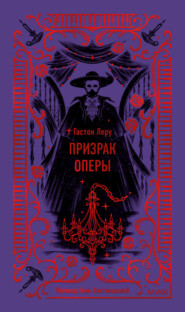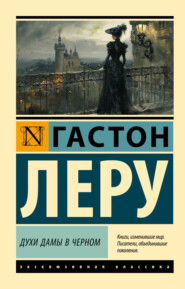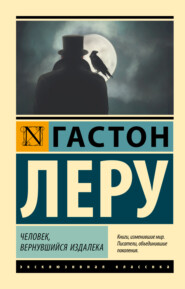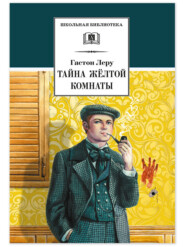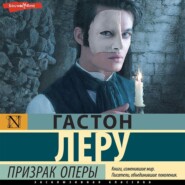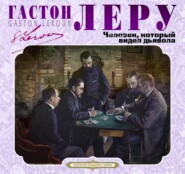По всем вопросам обращайтесь на: info@litportal.ru
(©) 2003-2025.
✖
The Bride of the Sun
Автор
Год написания книги
2018
Настройки чтения
Размер шрифта
Высота строк
Поля
“But it still lives!” thundered the voice. “The Sun still shines on his children; the Andes, cradle of our race, still tower to the skies; Cuzco, navel of the earth, still quivers at the voice of his priests; Sacsay-Huaynam and the Intihuatana are still standing; the procession of the Interaymi still starts from these sacred walls!”
At these words, the procession moved on again, and had it not been for the anachronism of the riflemen bringing up the rear, one could almost have believed that five hundred years had brought no change in the plains of the Cuzco.
Dick, finally free to move on, was despairing of ever getting nearer to Maria-Teresa when he met Orellana again.
“What are you looking for?” asked the old man. “A place to see from? Then come with me, and I’ll show you my daughter. I know Cuzco better than the Incas themselves. Come with me.”
Once again Dick allowed the madman to be his guide. They reentered the city by way of the Huatanay ravine, spanned to this day by the Conquistadors’ bridges, and entered a maze of side-streets free from the crowd. Skirting the prodigious Hatun Rumioc, or wall-which-is-of-one-rock, they passed Calcaurpata, which tradition makes the palace of Manco Capac himself, first King of the Incas and founder of Cuzco; then they turned toward the Plaza Principale, called Huàcaypata by the Quichuas of to-day as by the Incas of yore. To reach it, Orellana took Dick through the ruined palace of the Virgins of the Sun, detailing, as he went, the uses and names of the various rooms. The young man’s impatient interruptions left him quite unmoved.
“We have plenty of time. You shall see my daughter from so near that you could speak to her. Stop a minute, and listen to the quenias. The head of the procession has no more than reached San Domingo. That church, curiously enough, was built on the very foundations of the Temple of the Sun.... I have never met a visitor less curious than you are.... This is the cloister of the Virgins of the Sun.... It has always been the home of virtue and piety, for the Christians turned it into a convent under the auspices of Santa Catarina.”
Dick, unable to stand the guide’s jargon any longer, began to run toward the noise of the advancing procession.
“You might pay me!” shouted Orellana in his wake. “Pay me what you owe me!” and stooped to pick up the centavos which the young engineer threw on the ground.
Nearing the plaza principale, Dick again found his way blocked by the crowd, and forgot his anger in the relief of finding a friend when Orellana tugged at his poncho again.
“You might as well stop with me,” urged the old man. “Hurrying won’t help you. I know a little tiny Corridor of Night that will lead us to the Sun, right to the top stone of one of those temples.... It’s a temple dedicated to Venus.... They call her Chasca, or the young man with the long and curly locks, and he’s supposed to be the page of the Sun. Come with me.” Orellana had taken Dick by the hand, and led him to a cellar, in which they found the foot of a narrow staircase. Once at the top of it, they were, as the old man had promised, on the summit of a ruined temple, dominating the crowded square below and the streets radiating to it like the spokes of a wheel to the huh. Around them were other ruins; temples sacred to the moon, to the “armies of the heavens,” which are the stars, to the rainbow, lightning and thunder… walls which still defied the elements, though the temples were now shops, work-rooms or stables.
The head of the procession had appeared, the hundred servitors of the god pressing back the crowd, and slowly wound its way round the square. Then the golden litter came into sight and Huayna Capac, for the first time in centuries, came to the center of the world, the Umbilicus of which he had been lord and master. All heads were bowed before this sovereign shadow and the memory of ancient glories once again brought to life. The crowd even forgot for the moment its hatred of the stranger woman, the motionless Coya with the stranger child in her arms.
The double throne was brought to the center of the square, and the crowd rose with clamoring voices. Around the litter, the caciques and the chiefs, the nobles and the amautas, who are the sages, joined hands and began to circle, dancing as they danced of yore, when each man held a link of the golden chain and danced the Dance of the Chain. Hands made the links to-day, for when the Strangers slew Atahualpa, the nobles of the Cuzco threw that chain, which otherwise would have gone to the King’s ransom, into the deepest water of Lake Titicaca.
“Recuerda!”
Suddenly, as if from the heavens, this cry checked the rhythm of the Dance of the Chain. Maria-Teresa started on her throne, remembering the signal in the House of the Serpent. The child in her arms also lifted its head, and their eyes questioned the blue vault above from which this word of hope had fallen.
“That was Dick’s voice, Maria-Teresa! I told you he would come to save us!”
The girl’s eyes explored the towering walls about her, black with Indians. How could she recognize him in that crowd? Where was he? Again the voice rang out over their heads, so loud that it could be heard by the most distant unit of the crowd.
“Recuerda!”
Every head was turned upwards, and a threatening murmur rose from that human mass, torn from its dream of renascence and liberty by a single Spanish word. Recuerda! What must they remember? That they were slaves? That these fêtes, striving to recall an abolished past, could only last the space of a day? That the sun of to-morrow, forgetting that of to-day, would only shine anew on their servitude?
Maria-Teresa started up from the golden throne with the child in her arms, brought to life and action again by the beloved voice.
Looking higher, they at last saw, on the highest stone in the azure, a pigmy figure holding out its arms to the Coya, and crying, “Maria-Teresa! Maria-Teresa!”
“Dick!”
Then all understood that on high there was a stranger, one of the hated race, come to rob them of the soul of their Coya.
V
Pandemonium reigned in the square. This was sacrilege unspeakable! Did not the Coya already belong to the gods! Muera la Coya! Death to the stranger! There was a huge rush, a scramble of raging Indians along parapets, over rocks and the ruins of temples, while the golden litter was hurried away by the Guards of the Sacrifice and the amautas. Maria-Teresa closed her eyes, carrying to the tomb that supreme farewell which was perhaps to cost Dick his life.
“You must be mad,” said the madman Orellana, when he saw Dick lean over and call to Maria-Teresa, and when she answered, asked almost angrily: “How did you come to know my daughter?”
The roar of the angry crowd surged up to them, surrounded them, and drew nearer. It was with the greatest difficulty that Orellana shook Dick out of his strange torpor, dragged him through the gap from which they had emerged, and finally to the labyrinth below the Temple. Apparently familiar with every twist and turning of the place, he led him through a mile of passages, their darkness relieved here and there by round, square or triangular patches of light sifting down between thousand-year-old stones from the world above. Occasionally he stopped to tell Dick what temple, what palace, they were passing under.
“Yaca-Huasi, which they also call the House of the Serpent, is over our heads now.”
“Perhaps they have taken her there!”
“No, no! That’s against all the rules. The Temple of Death is the next place.”
“Where are we going to? Where are you taking me?”
“To the Temple of Death, of course!”
Dick followed him without another word, but expressed his surprise when they emerged into the open country.
“Where is the Temple, then?” he asked.
“On the Island of Titicaca. You needn’t be afraid. We shall get there before them.”
They hired horses at a wayside inn and rode to Sicuani. Here they took a train which, turning onto a branch line at Juliaca, then ran to Puno, on the shores of Lake Titicaca. On the way, Orellana babbled ceaselessly about the country through which they were passing and the ceremony they were to witness.
No stranger has ever seen it. But he, Orellana, asked nobody’s permission, and since his daughter was to be wedded to the Sun, it was the least of things that he should be present at the marriage, and particularly as he had planned it all so carefully! It had taken him years to find the Temple of Death, but with patience all things could be done. There was not one dried-up river-bed underground, not a deserted goldmine which he did not know so well that he could find his way about it with his eyes shut.
And what fortunes he had discovered under the earth; a fortune equal to all the fortunes on earth! It was obvious that the Incas must have got their gold somewhere. Well, he had discovered where! There was plenty of it left, plenty of it left!… One day, some clever young engineer would find out, and he would only have to stoop to be as rich as Croesus. (A bitter smile from the young engineer, whose thoughts were far from such things.)… But he, Orellana, did not give a fig for all the gold in creation.
He loved only his daughter, whom the Indians had taken to the Temple of Death, and it was only the Temple of Death which he had sought.
It had taken him years, but now everything was; ready and he was going to save her. He had waited long enough to kiss her again! Ten whole years!
So the old man wandered on, while Dick listened eagerly, striving to guess how much was truth, and how much madness.
“But how do they get from Cuzco to the Temple of Death?”
“Don’t you worry about that.... By the Corridors of Night, by the Corridors of the Mountains of Night, by the Corridors of the Lake of Night.... By the way, do you know anything about fishing?”
Dick did not have time to answer this extraordinary question, for the guard had come through to their carriage, and was inviting them to the luggage-van to see the samacuena danced. Everybody else seemed to be going there, and they accepted so as not to draw attention to themselves. They found the van peopled with Indians, dancing, playing the guitar, and drinking hard. At each step, the guard, to celebrate Garcia’s victories, fired a volley of cohetes, the mountains throwing back the echo of the explosions.
Then some of the Quichua soldiers in the train gave themselves up to the pleasures of the chase. Spying flocks of vicuñas in the hills, they went to the observation-car and tried their luck. One of them, something of a marksman, brought down a vicuña, the train stopped with a grinding of brakes, and the guard himself went off to retrieve the bag.
Dick, wild with impatience, would have liked to club the engine driver and take charge of the locomotive himself, but Orellana calmed him down.
“We’re sure to get there before them. You’ll see! Why, we shall even have time to do some fishing!”
Leaving their fellow-travelers to cut up the vicuña, they returned to their carriage, where the stove had been lighted. It had become intensely cold, for they were now in the snow regions, more than fourteen thousand feet above sea-level. Soroche, or mountain fever, threw the young engineer, and after bleeding violently at the nose, he fell into a semi-comatose condition. He did not recover until Punho, when he again remembered the horrible nightmare through which he was living, and savagely demanded to be shown the way to the Temple of Death.
“We’re going there,” replied his strange guide, but first took him to the main square, where about a hundred Indian girls, wearing skirts of a dark material and the low-cut bodices of their race, squatted in orderly rows, selling fruits and vegetables dried in the cold.
“There are usually two hundred of them,” explained Orellana, “but the Red Ponchos have been this way and chosen the best-looking half for the ceremony. It’s the same thing every ten years.”
He made a few purchases with Dick’s money, and after adding a flask of pisco to his stores, led the way out of the city. At nightfall they reached a huge marsh, alive with water-fowl. Next they crossed a heath, llamas and alpacas fleeing at their approach, and finally came to a dismal little bay on the shores of the lake.







